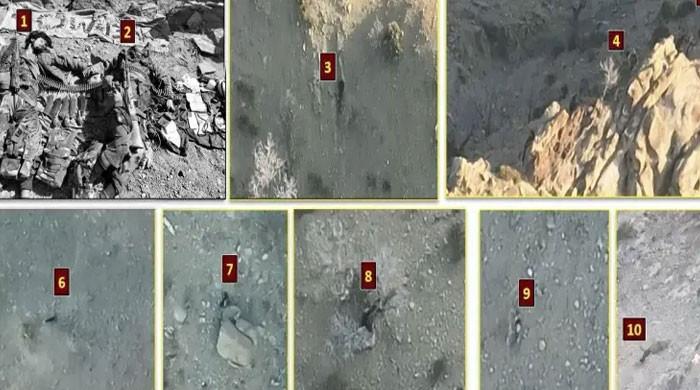Cipher case: Imran Khan booked under Official Secrets Act
Development comes after FIA counter-terrorism wing's FIR invoked Section 5 of said act
August 18, 2023

- Development comes after FIA's FIR invoked Section 5 of said act.
- FIR was registered by FIA counter-terrorism wing.
- Punishment involves 2-14 years' imprisonment or death sentence.
ISLAMABAD: After a first information report (FIR) against the Pakistan Tehreek-e-Insaf (PTI) Chairman Imran Khan, registered by the Federal Investigation Agency (FIA), invoked Section 5 of the Official Secrets Act 1923, the former prime minister has been booked under the said law in the cipher case, The News reported.
The counter-terrorism wing of the FIA had registered the case against the former prime minister — who was ousted from office after a no-confidence motion in April last year — after ascertaining his deliberate involvement in misusing the classified document following a probe.
The government sources, on Thursday, also confirmed that the PTI chief has been booked under Section 5 of the recently-amended act. However, authorities displayed reluctance in sharing a copy of the FIR.
Offences under Section 5, if proved in a court of law, involve punishment of imprisonment from two to 14 years, and in some cases even a death sentence.
According to Section 5 of the Official Secrets Act 1923: “(1) If any person having in his possession or control any secret official code or password or any sketch, plan, model, article, note, document or information which relates to or is used in a prohibited place or relates to anything in such a place, or which has been made or obtained in contravention of this Act, or which has been entrusted in confidence to him by any person holding office under [Government], or which he has obtained or to which he has had access owing to his position as a person who holds or has held office under [Government], or as a person who holds or has held a contract made on behalf of [Government], or as a person who is or has been employed under a person who holds or has held such an office or contract —
a) wilfully communicates the code or password, sketch, plan, model, article, note, document or information to any person other than a person to whom he is authorised to communicate it, or a Court of Justice or a person to whom it is, in the interests of the State, his duty to communicate it; or
b) uses the information in his possession for the benefit of any foreign power or in any other manner prejudicial to the safety of the State; or c) retains the sketch, plan, model, article, note or document in his possession or control when he has no right to retain it, or when it is contrary to his duty to retain it, or wilfully fails to comply with all directions issued by lawful authority with regard to the return or disposal thereof;
d) fails to take reasonable care of, or so conducts himself as to endanger the safety of, the sketch, plan, model, article, note, document, secret official code or password or information;
He shall be guilty of an offence under this section.
(2) If any person voluntarily receives any secret official code or password or any sketch, plan, model, article, note, document or information knowing or having reasonable ground to believe, at the time when he receives it, that the code, password, sketch, plan, model, article, note, document or information is communicated in contravention of this Act, he shall be guilty of an offence under this section.
(3) A person guilty of an offence under this section shall be punishable, (a) where the offence committed is a contravention of clause (a) of sub-section (1) and intended or calculated to be, directly or indirectly, in the interest or for the benefit of a foreign power, or is in relation to any work of defence, arsenal, naval, military or air force establishment or station, mine, mine-field, factory, dockyard, camp, ship or aircraft or otherwise in relation to the naval, military or air force affairs of Pakistan or in relation to any secret official code, [with death, or] with imprisonment for a term which may extend to fourteen years; and (b) in any other case, with imprisonment for a term which may extend to two years, or with fine, or with both.”
The cipher case against the former premier became serious after his principal secretary Azam Khan stated before a magistrate as well as the FIA that the former PM had used the US cipher for his ‘political gains’ and to avert a vote of no-confidence against him.
The former bureaucrat, in his confession, said when he provided the ex-premier with the cipher, he was “euphoric” and termed the language a “US blunder”. The former prime minister, according to Azam, then said that the cable could be used for “creating a narrative against establishment and opposition”.
Azam said the US cipher was used in political gatherings by the PTI chairman, despite his advice to him to avoid such acts. He mentioned that the former prime minister also told him that the cipher could be used to divert the public’s attention towards “foreign involvement” in the opposition’s no-confidence motion.











